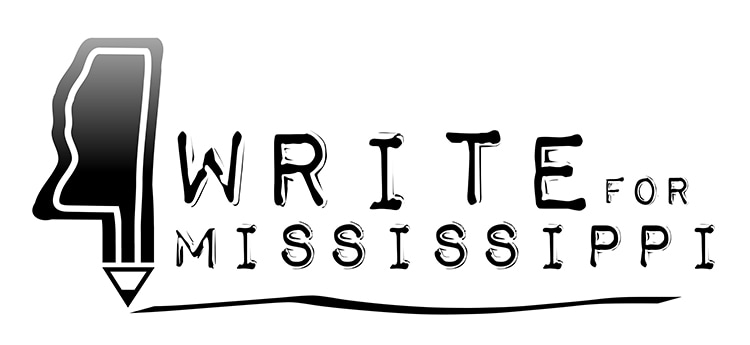Write for Mississippi
Noted author Katy Simpson Smith spearheads a program that brings writers into high schools, challenging students to tackle problems in their own communities - with the power of the pen.
- by LB Kovac
Smith is an author by trade - her first novel, “The Story of Land and Sea” (2014), was released to good reviews, and her latest novel, “Free Men”, has similarly received high praise from publications like “Vogue,” “The Washington Post,” and “The New York Times.”
And so it makes sense that, from her initial inspiration in that high school classroom, Smith would develop a way to demonstrate to students the power of their words.
Heirs of that Revolution
Smith is behind Write for Mississippi (WFM), an organization that seeks to “use creative writing and storytelling to further the causes of community engagement, social justice, free speech, historical responsibility…” WFM’s latest advocacy uses writing as a “springboard for action,” empowering students – students at high schools across all 82 counties of Mississippi – to pinpoint and address problems within their own communities.
With her project, Smith poses two questions to Mississippi’s students: “What is a problem within your community? How could you fix it?” Dubbed, “What Can We Do For Our Country?” WFM marries writing, duty, and advocacy.
Smith’s questions are questions that writers from every generation of American history have considered. One example is Maya Angelou, author of the poem, “Still I Rise.” Published in 1978, the poem speaks to the era’s restrictions imposed on the civil liberties of African Americans. By the simple act of writing the poem, Angelou brought to light a pressing problem in her own community. Smith hopes that students will be inspired by the works of writers like Angelou, Danez Smith, Langston Hughes, and others. By getting students to engage with issues personal to them and asking them to think about possible solutions, Smith says it will “provoke students into thinking of themselves as agents of change.” From there, who knows what will happen?
A Special Pledge
This isn’t Smith’s first foray into civic action. Last year, Smith created an alliance of 95 writers to petition against Mississippi’s H.B.1523, also known as the “Religious Liberty Accommodations Act” or “First Amendment Defense Act.”
This bill, which Governor Phil Bryant signed into law, would make it legal for organizations, businesses, and private citizens to discriminate against patrons or employees based on their perceived sex or their sexual orientation. The response to Smith’s latest project, Write For Mississippi so far has been heartening. More than 40 writers have volunteered their time and skills to lead the project’s proposed 50-minute classroom workshops. Teachers and educators in 22 of Mississippi’s counties have responded with requests for these visiting writer’s workshops. And a GoFundMe page set up to cover costs reached more than 85% of its goal in less than 18 days (click on the link to donate to the project). But Smith isn’t satisfied with those numbers. She’d like to have all 82 counties in Mississippi represented in the project. Area teachers interested in participating in “What Can We Do For Our Country?” can contact Smith through the Write for Mississippi website. Smith will pair each classroom with a writer and plan the workshop sometime between the beginning of February and the end of April, schedules permitting. And educators unable to accommodate writers can lead their own workshops with the classroom materials and sample lesson plan provided on the Write for Mississippi website.
A Celebration of Freedom
Smith says that the ultimate goal of the project, beyond inspiring the children to take initiative and seek to change things in their own communities, is to collect the best poems, essays, and short stories that come out of the workshops and publish them as a collection in a book to be distributed across the state.
This way, other students across the state will feel empowered to address issues in their own communities. And, among the voices of the next generation of Mississippi writers, there might be another Kennedy, Smith, or Angelou. Comments are closed.
|
Categories
All
Archives
April 2024
|
Shoofly Magazine Partners
Our Shoofly Partners are local businesses and organizations who share our mission to enrich community life in Bay St. Louis, Waveland, Diamondhead and Pass Christian. These are limited in number to maximize visibility. Email us now to become a Shoofly Partner!




























 RSS Feed
RSS Feed























